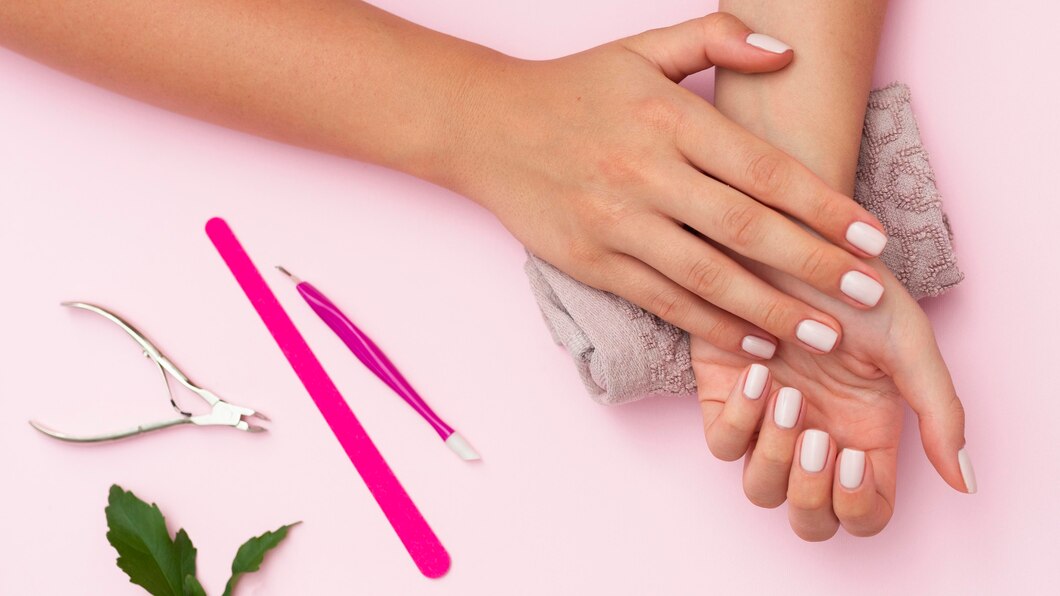Nail care is an important aspect of personal hygiene and professional presentation, especially for those in occupations that require direct contact with people or food. Different professions have specific nail care needs due to hygiene standards, safety concerns, and practical requirements. Here’s a guide to nail care tips for various professions, including nurses, chefs, and others.
1. Nail Care for Nurses
Hygiene and Safety: Nurses must adhere to strict hygiene standards to prevent the spread of infections. Short, clean nails are essential, as long nails can harbor bacteria and make it difficult to wear gloves comfortably.
- Keep Nails Short and Clean: Trim nails regularly and keep them short to avoid tears and reduce the risk of spreading germs.
- Avoid Nail Polish and Artificial Nails: Most healthcare facilities discourage or prohibit nail polish and artificial nails due to infection control policies. If allowed, opt for a neutral, chip-resistant polish.
- Moisturize Regularly: Frequent handwashing can lead to dry skin and brittle nails. Use a moisturizing hand cream regularly to maintain healthy skin and nails.
2. Nail Care for Chefs
Safety and Practicality: Chefs need to maintain nails that are both safe and practical for working in a fast-paced kitchen environment. Nails should be kept short to avoid accidents and contamination.
- Trim and File Regularly: Keep nails short and neatly filed to prevent snagging or breaking while working with food.
- Avoid Nail Polish: Like nurses, chefs should avoid nail polish to ensure food safety and comply with health regulations.
- Use a Nail Brush: Clean under your nails with a nail brush regularly to remove food particles and prevent bacteria buildup.
3. Nail Care for Office Workers
Professional Appearance: Office workers often engage in interactions that require a polished and professional appearance. Well-groomed nails contribute to overall professionalism.
- Maintain a Moderate Length: Keep nails at a manageable length that looks professional yet functional for typing and handling documents.
- Choose Neutral or Subtle Colors: Opt for neutral or subtle nail polish colors that complement professional attire.
- Hydrate Nails: Use cuticle oil and hand cream to keep nails and hands hydrated, especially if you work in a dry, air-conditioned environment.
4. Nail Care for Artists and Musicians
Functionality and Expression: Artists and musicians may use their hands expressively and require nails that support their creative work without hindering performance.
- Consider Your Instrument or Medium: Musicians, especially guitarists and pianists, may need specific nail lengths and shapes. Artists working with paints or clay should keep nails clean and free from debris.
- Express Yourself: If your profession allows, use nail art and colors as a form of self-expression, but ensure it doesn’t interfere with your work.
- Strengthen Nails: Use strengthening treatments if your nails are exposed to chemicals or prone to breaking.
5. Nail Care for Manual Laborers
Durability and Protection: Those in manual labor need nails that are durable and protected from the wear and tear of physical work.
- Keep Nails Short: Short nails are less likely to break or get caught in machinery.
- Use Protective Gloves: Wear gloves when possible to protect nails and hands from damage and harsh conditions.
- Moisturize and Strengthen: Apply hand cream and strengthening nail treatments to combat dryness and brittleness caused by exposure to rough materials.
Nail care is an important part of maintaining hygiene and professionalism in various occupations. By understanding the specific needs and requirements of your profession, you can ensure that your nails are both functional and well-groomed. Whether you’re a nurse, chef, office worker, artist, or laborer, these tailored tips can help you maintain healthy nails that complement your professional lifestyle.








